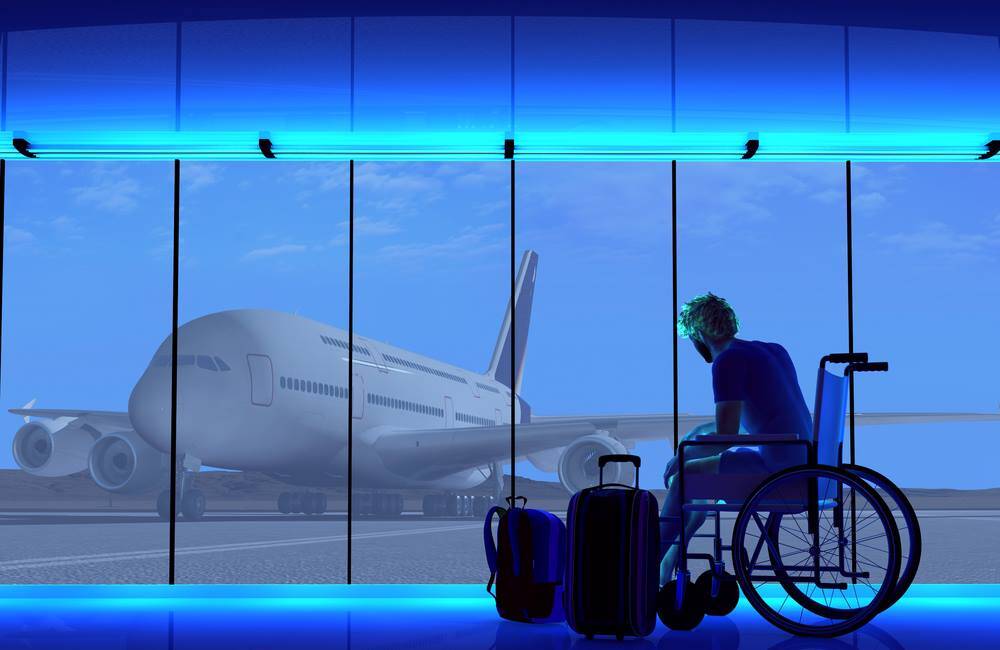The inability to access lavatories on single-aisle planes has lead an advocacy group to file a lawsuit against the federal department of Transportation (DOT). The lawsuit seeks to force the DOT to mandate that airlines make lavatories wheelchair accessible for disabled travelers.
It’s a change that those with disabilities have waited on for more than 30 years. Requiring single-aisle planes to have accessible lavatories was envisioned in the 1986 Air Carrier Access Act.
Disabled Travelers Lawsuit
James Thomas Wheaton, the veteran who leads the Paralyzed Veterans of America organization that filed the lawsuit, told USA Today he has spent three decades hoping that DOT would make the change. He said the inability to use the bathroom during long flights is “a horrific feeling. In my 30 years of being disabled, I feel the most paralyzed and the most limited in those settings.”
Wheaton was paralyzed after getting hit by a drunk driver while serving with the Navy in Australia.
Bathroom Issues
For those without disabilities, it’s difficult to imagine the discomfort and pain for disabled travelers who cannot use the bathroom.
Most domestic flights use single-aisle planes, so without handicapped-accessible bathrooms, disabled travelers are forced to wait until the plane lands and everyone disembarks before they can get to an accessible bathroom in the airport.
It’s a terrible experience. Two-thirds of those surveyed by the DOT on the issue in 2016 said that it’s enough to make them avoid flying entirely.
As it stands, it’s difficult to maneuver to the bathrooms even while using an onboard wheelchair designed for the narrow aisle. There are raised bumps on the threshold of the lavatory that are hard to cross. Also, bathroom doors tend to face each other across a narrow aisle, making it hard to maneuver.
Airline Issues
For airlines, expanding the size of onboard lavatories to make them wheelchair accessible would require an investment of money and a loss of space in the plane cabin.
Representatives of the airlines have told Congress that expanding the bathrooms could cost them three passenger seats in the cabin, leading to a loss of $33 billion over the next 25 years, according to USA Today.
There’s been inaction on the issue by the federal government. The Trump Administration has suspended the creation of new regulations pending review of ones proposed during the Obama Administration.
On its website, the Paralyzed Veterans of America urges members to contact their representatives on several related issues. They include formation of a disabled traveler’s bill of rights and harsher penalties for those who injure disabled travelers or break their wheelchairs.
Both things happen with regularity, according to the advocacy group.The organization states that while some changes have been made to help the disabled on flights, “It’s clear that more must be done.”
